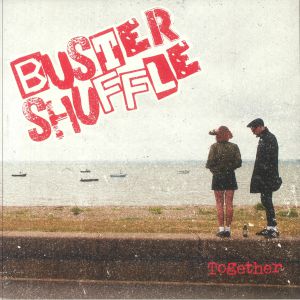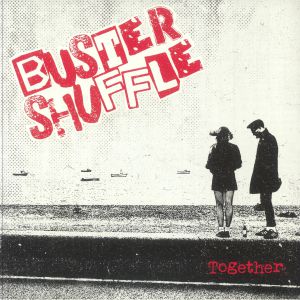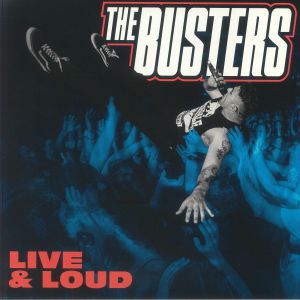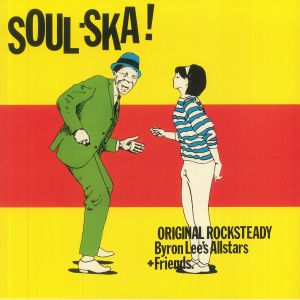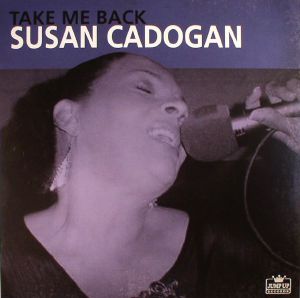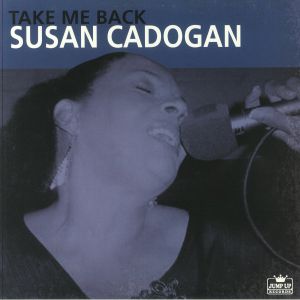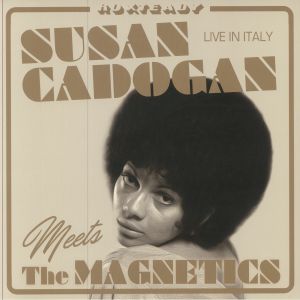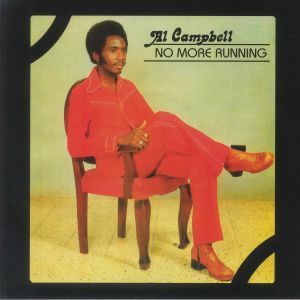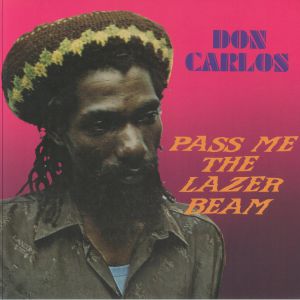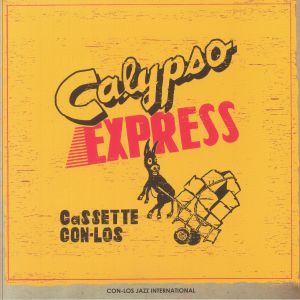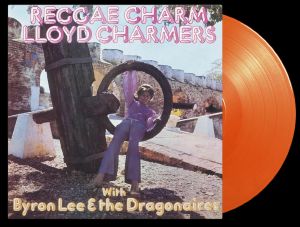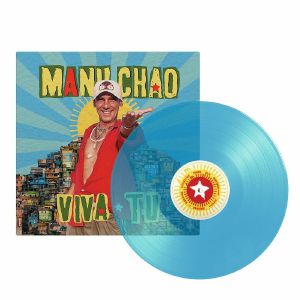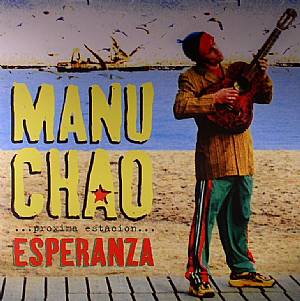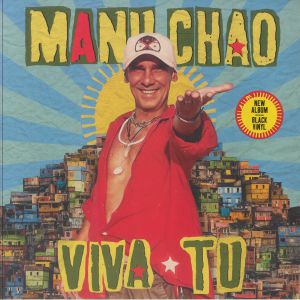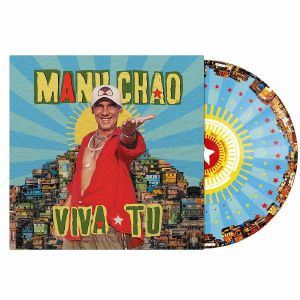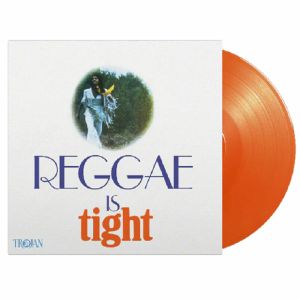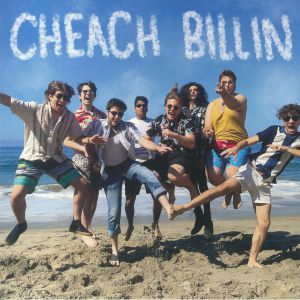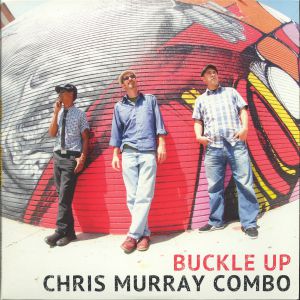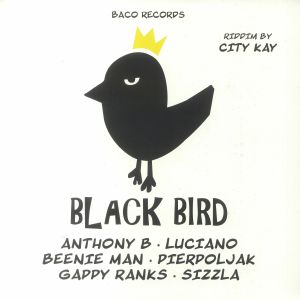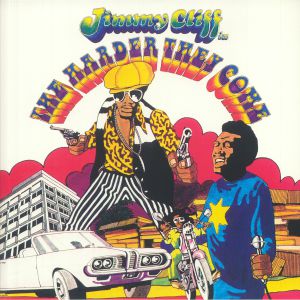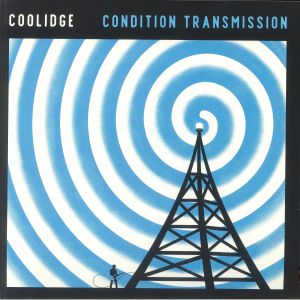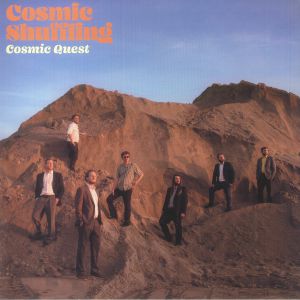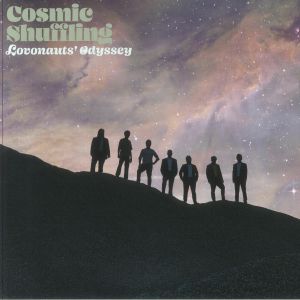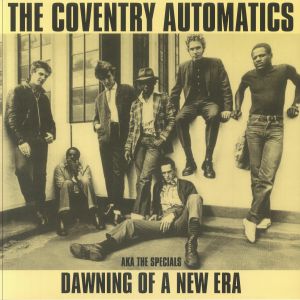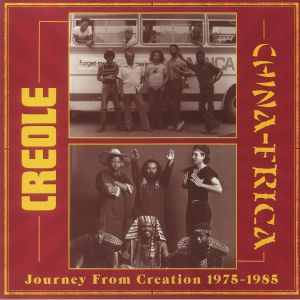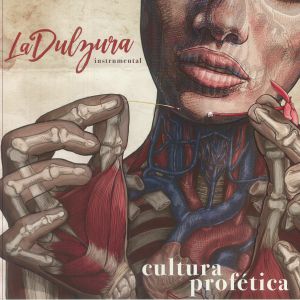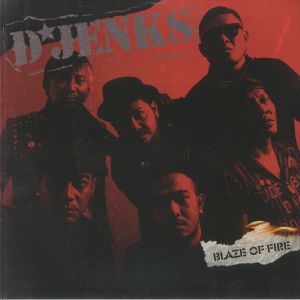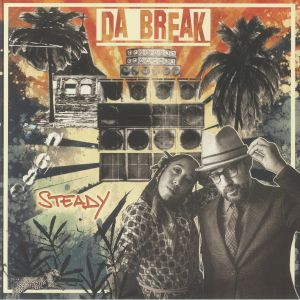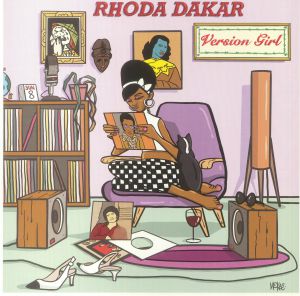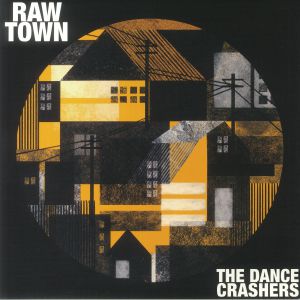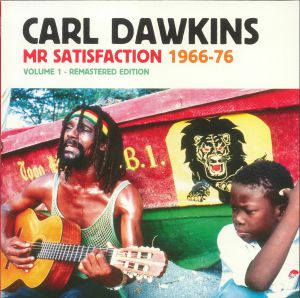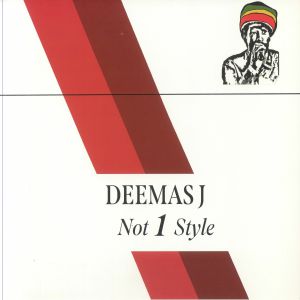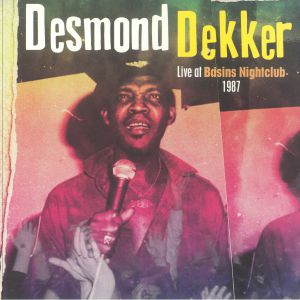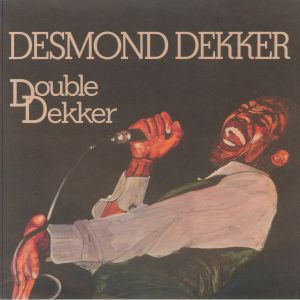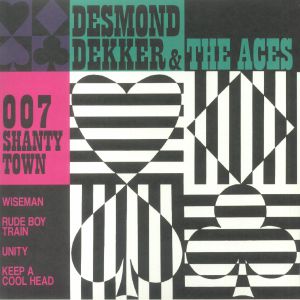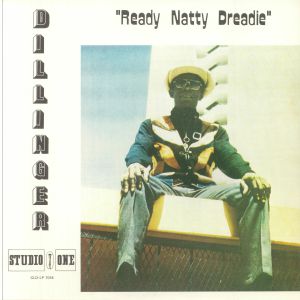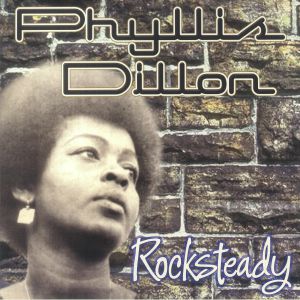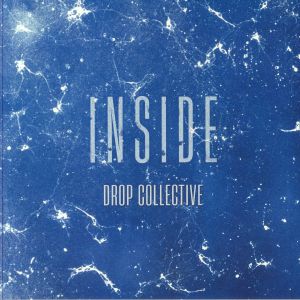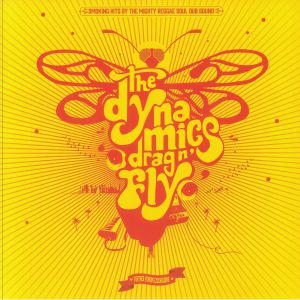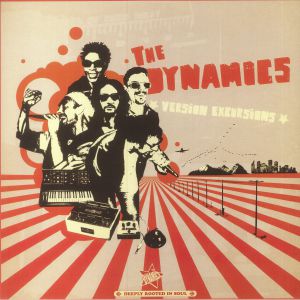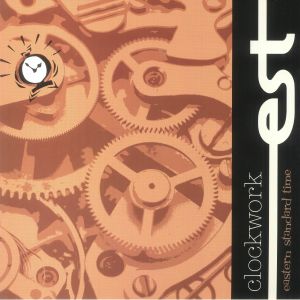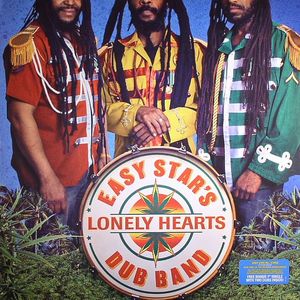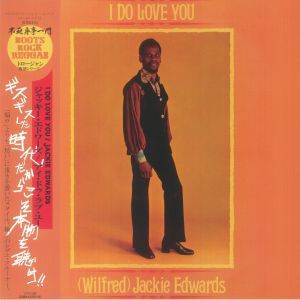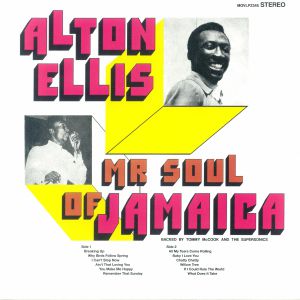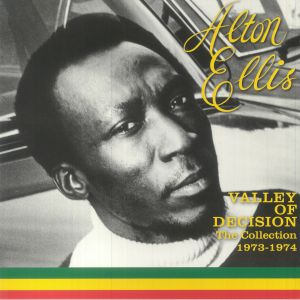Filter
Type
Music
Format
Release Date
Artist
Release Title
Price
Tags
Back catalogue: Clásico/Ska
Juno's full catalogue of Clásico/Ska
Álbumes
Together (limited transparent green vinyl LP + insert (indie exclusive))
Cat: CG 165346LP. Rel: 01 Apr 25
in stock $31.43
in stock $23.35
Live & Loud (translucent blue vinyl LP + insert)
Cat: SRR 022. Rel: 10 Dec 24
in stock $27.81
Soul Ska! (limited 180 gram red vinyl LP)
Cat: BSRLP 934R. Rel: 28 Jan 22
Review: Byron Lee was an important part of Jamaican music from his first appearance in the 60s and onwards. Amongst his bustling back catalogue is this cheery classic from 1980, which keeps the heart and soul of ska alive, with an emphasis on the soul. The rhythms are reliably skanking throughout, whether stopping by the melancholic 'Shoobe Doobe Doo' or the chirpy 'Bend Down Low'. This is ska in its truest sense, with an infectious energy which speaks universally to young and old, hip and square. You can also hear the strong US RnB roots of the music in Lee's songwriting, and it tugs at the heart strings in just the same way. Grab an immaculate album of honest, earnest songwriting magic with all the irrepressible joy of Jamaica coursing through its veins.
… Read moreIntérprete: Juno Recommends Reggae, Charlie bucket/ dancing in space
in stock $15.02
in stock $19.94
in stock $30.02
in stock $46.44
No More Running (reissue) (180 gram translucent purple vinyl LP)
Cat: BSRLP 941P. Rel: 27 Feb 25
Review: 1978 was a standout year for the great Al Campbell, with five album releases across various labels. This particular album, originally released on Phil Pratt's Terminal label, was originally released in 1981 and stands as one of his most notable. It features powerful roots tracks like 'Foot Stool,' 'Soul Sister' and 'No More Running' which combine militant rhythms with Campbell's soulful vocals fusing conscious reggae and emotional depth. It is a true classic of its genre that now comes on nice coloured wax that looks as good as it sounds.
… Read more in stock $20.59
Intérprete: Juno Recommends Reggae
in stock $22.53
in stock $40.33
Reggae Charm (reissue) (limited numbered 180 gram audiophile orange vinyl LP)
Cat: MOVLP 3758C. Rel: 12 Aug 24
Review: Reggae Charmers was originally released in 1970 and it showcased the best of Lloyd Charmers, who was born Lloyd Tyrell. His career spans Jamaica's vibrant musical eras from the late 50s shuffle r&b and ska boom to the rocksteady and roots reggae of the 60s and 70s. Across those years, Charmers excelled as a vocalist, session musician, and producer and after taking up the piano in 1966, he soon formed his own band. It backed artists like Ken Parker, Max Romeo, Pat Kelly, John Holt, and Slim Smith & the Uniques while Charmers also sang with the Uniques and gained a reputation for delivering some of the era's most compelling rhythms.
… Read more in stock $28.92
Viva Tu (limited gatefold translucent blue vinyl LP + booklet)
Cat: BEC 5613920. Rel: 19 Sep 24
Review: French-Spanish, Latin soul and Afrobeats singer-songwriter Manu Chao returns to the fore with Viva Tu ('Long Live You'), a heartwarming Latin ska and worldbeat album dedicated to uncovetable, amicable neighbourly relations between members of the public. After the release of the eponymous lead single, the full record comes now in full cordial force. With its sleepily descendant vocals giving off the sense of a narrator too sunkissed to care, Viva Tu is an al fresco listening experience, one that also nonetheless betrays Chao's seasoned, well-tanned skin in the game. Now 63, this is a comeback album "inspired by (Chao's) travels and people's daily lives", and it hears him hark after something like a universal language, flexing his multilingual chops by singing in Spanish, French, Portuguese and English. All this forms part of Chao's mission to address the various global issues facing humanity today, in such a manner as only he can do best; he treats music as a vehicle for a humanistic global activism, aiming to promote anti-capitalist, antifascist and without-borders content.
… Read moreIntérprete: Juno Recommends Reggae
in stock $28.37
Proxima Estacion Esperanza (gatefold 2xLP)
Cat: BEC 5161607. Rel: 16 Oct 13
in stock $19.74
in stock $25.58
Viva Tu (limited gatefold picture disc LP + booklet)
Cat: BEC 5613921. Rel: 19 Sep 24
Review: French Latin ska/dancehall artist Manu Chao (Los Carayos, Hot Pants) shares 'Viva Tu', his latest single pre-empting his upcoming solo summer stomper of an album. A wholesome ode to the neighbourly charms of his Chao's home city, 'Viva Tu' translates to "long live you!", and sports a universal message of simple merriment and streetwise hobnobbing. From "the one who sells tickets on the subway, to the street-sweeper", Chao's call for love - mediated by the irresistible sweetmeats of rhythm guitar and trilling ad-libs - excludes no-one. It's also a great, sweet-hearted song.
… Read moreIntérprete: Juno Recommends Reggae
in stock $33.36
Reggae Is Tight (limited numbered 180 gram audiophile orange vinyl LP)
Cat: MOVLP 3698C. Rel: 25 Mar 25
Review: A key figure in Jamaican music who first gained recognition with The Uniques before branching out as a solo artist and producer. By the late 60s, he'd honed his skills in arrangement and keyboard-driven reggae, culminating in Reggae Is Tight and Reggae Charm. Reggae Is Tight bursts to life with the insistent chant of '5 to ', riding a thick organ groove. Charmers reinterprets The Uniques' 'Watch The Sound' as the flowing piano instrumental 'Follow This Sound'. He transforms classics like 'Blue Moon' into reggae gems, while 'Psychedelic Reggae' leans into dubby echo effects. The album thrives on tight, dancefloor-ready rhythms, with 'Stronger' capping off the set in style. His deal with Trojan Records led to Reggae Is Tightia stunning example of his keyboard prowess over driving, fast-paced rhythms. Blending infectious organ grooves with classic boss reggae energy, the album captures the golden era of Jamaican sounds. Now reissued as a limited edition on orange vinyl, Reggae Is Tight remains an essential listen for vintage reggae enthusiasts, highlighting Charmers' innovative touch and deep influence on the genre.
… Read more in stock $32.25
in stock $30.88
in stock $38.66
CITY KAY / VARIOUS
Black Bird: Riddim By City Kay (limited yellow vinyl LP + MP3 download code)
Cat: BDV 18039. Rel: 01 Jan 90
in stock $28.65
Jimmy CLIFF / VARIOUS
The Harder They Come (Soundtrack) (gatefold LP)
Cat: ISLAND 73949. Rel: 07 Dec 20
in stock $25.31
Condition Transmission (translucent blue vinyl LP limited to 250 copies)
Cat: JUMP 194LP CLEAR BLUE. Rel: 15 Feb 24
in stock $29.48
Intérprete: Juno Recommends Reggae
in stock $23.64
in stock $28.37
in stock $17.80
Journey From Creation 1975-1985 (gatefold vinyl 2xLP)
Cat: DKR 216. Rel: 16 Feb 23
in stock $43.95
in stock $45.90
Blaze Of Fire (limited translucent red vinyl LP + insert)
Cat: JUMP 198LP. Rel: 27 Sep 24
in stock $20.55
Review: France has always had its own vibrant hip-hop scene and walking streets of its big cities you won't go far without some young rappers pumping out beats and delivering their best bars in the hope of collecting some of your loose change. Lyon based band Da Break are one of the more established outfits have out out a strictly 90s hip hop and r&b flavoured debut, then the more opened minds Let It Shine which brought g-funk, jazz and soul. Now they return with the ska-leaning Steady which might be their best yet.
… Read more in stock $29.21
in stock $31.99
in stock $40.61
in stock $33.36
in stock $23.35
Cat: PRPLP 060. Rel: 10 Jul 24
in stock $25.31
Intérprete: Craig Charles Funk And Soul
in stock $20.87
Live At Basins Nightclub 1987 (180 gram vinyl LP)
Cat: BSRLP 836. Rel: 25 Apr 24
Medley: 007 (Shanty Town)/Blue Moon/All I Have To Do Is Dream/Cupid/One Love/Wimoweh/Simmer Down (5:06)
in stock $20.01
Double Dekker (reissue) (limited numbered 180 gram audiophile gold vinyl 2xLP)
Cat: MOVLP 2483G. Rel: 06 Feb 24
Review: Desmond Dekker recorded some of his best known songs together with his backing group the Aces. Their single '007 (Shanty Town)' made him Jamaican music's first outernational superstar, reaching the 14th place in the UK charts. The Leslie Kong-produced Double Dekker was first issued in 1973 and consists of the best material Desmond recorded during his early years. In 1969 he scored a number-one hit with the legendary song Israelites. You'll hear how the Ska music from the mid-60s developed to the Rocksteady sound. This was 'Ska' or 'Blue Beat' - (or its new name for the slower tempo rocksteady) - and the lyrics come from the Calypso-Mento method of telling about current events in music. He was really at his prime from 1969 to 1971 and recorded classics such as 'It Mek' (1969) and 'You Can Get It If You Really Want' (1970), which you'll both find on this record. Even before Bob Marley and Jimmy Cliff Jamaica already had their own international superstar, Desmond Dekker was his name.
… Read moreIntérprete: Juno Recommends Reggae
in stock $31.99
007 Shanty Town (limited numbered 180 gram audiophile magenta vinyl LP)
Cat: MOVLP 2347M. Rel: 13 Apr 23
Review: Shanty Town was the debut album by the legends in the making of the reggae world that are Desmond Dekker and his Aces aka Wilson James and Easton Barrington Howard. It of course induces the title track which was the first to make them stars on the international stage and even managed to hit the heady heights of #14 on the UK charts. It's an album that shows how ska from the mid-60s had an influence on the rocksteady sound and as well as the 'Spanky Town' classic you'll hear gems like 'Israelites' from 1968 and 'It Miek' from 1969.
… Read more in stock $34.48
Review: If you like your reggae true to the original sound then this one is likely already long on your want list. It's a stone-cold classic from Dillinger that was one of the great DJ albums for Studio One back in the mid-1970s. It is packed with classic rhythms that were all produced with the expert guidance of Clement Dodd. Ready Natty Dreadie features non-stop highlights such as 'Pretty Looks' and 'Ten to One', the weighty low end of 'Full Up' and the magical top lines of 'Creation Rebel'. A crucial reissue.
… Read moreIntérprete: Juno Recommends Reggae
in stock $33.36
Review: Phyllis Dillon was a Jamaican rocksteady and reggae singer of international yet underground renown; she was an artist best complemented in her day for navigating a largely male-dominated industry which nevertheless found space to accommodate her. 'Rocksteady', aptly named after the genre in which the album resides, here gets a release via Archive after being officially first released via Trojan. Characteristically snappy, fluting and raw recordings back up Dillon's wispy, harmonic vocals, which are often backed up by a dreamy backing choir and delicately complex melodies.
… Read more in stock $21.97
in stock $30.60
in stock $13.34
in stock $22.24
Review: The Dynamics honour Jamaica's musical legacy with Drag'n'Fly, their third album, transforming classics with reggae, soul and funk. Like the 1960s tradition of ska and rocksteady reshaping US soul hits, they take songs from all genres - pop, country, jazz - and infuse them with island rhythms. Mounam, Steve Levi, and Mr Day lead the charge with their distinct vocals, while Fab Master Flab weaves futuristic echoes through roots instrumentation. From reimagining ESG's minimal pop to turning Pharoah Sanders' 'You Got To Have Freedom' into a dub anthem, Drag'n'Fly is an irresistible mix, destined for stereos and spicy dancefloors alike.
… Read more in stock $33.36
Review: Back in the mid-to-late noughties, musical polymath Bruno Hovart (Patchworks, Voilaaa, Mr President, Uptown Funk Empire etc) helmed a revivalist dub reggae band famed for delivering dusty cover versions of soul, pop and rock hits. Hovart is a dab hand at making anything he touches sound scarily authentic, and much of Version Excursions, the band's now reissued debut album, sounds like proper Jamaican rocksteady, roots and ska of the 1970s. It's a simple idea, brilliantly executed, with highlights including their covers of 'Seven Nation Army', the Rolling Stones' 'Miss You' (reimagined as a toaster-sporting disco-reggae jam), and Led Zeppelin's 'Whole Lotta Love'.
… Read moreIntérprete: * Record Breakin' Music *, Juno Recommends Reggae
in stock $31.99
in stock $21.47
Intérprete: Chris Coco
in stock $18.64
I Do Love You (reissue) (LP with obi-strip)
Cat: OTS 290. Rel: 25 Sep 23
Review: Following his Original Mr Cool Ruler album being reissued back in summer by Lantern Rec, Octave Lab now gets in on the action by serving up his I Do Love You album from 1972. It's a delightful work of lovers' rock and roots magic that is centered around his impossibly pure and soulful vocals. They convey all manner of emotions from pain to joy over clean dubs and acoustic guitars. The hooks are catchy and their rhythms percussive, with joyous like 'Don't Stop' and more rueful vibes such as 'You're Eyes Are Dreaming' all sounding as good as ever.
… Read more in stock $43.11
in stock $26.69
Mr Soul Of Jamaica (reissue) (limited 180 gram audiophile vinyl LP)
Cat: MOVLP 2345C. Rel: 29 Jan 19
Intérprete: Juno Recommends Reggae, Reggae Mash Ups Tha Dance !
in stock $32.81
Valley Of Decision: The Collection 1973-1974 (limited LP)
Cat: LANR 033. Rel: 19 Oct 23
Review: Jamaican singer-songwriter Alton Nehemiah Ellis OD has been inducted into the International Reggae And World Music Awards Hall Of Fame since 2006 - just two years before his death - which shows how much he contributed to the genre in his heyday. And that was the early 70s, when most of the music on this new album Valley Of Decision: The Collection is taken from. His style was high-impact reggae, often delivered with extra power from superb horn arrangements. For many, he was an important pioneer in the development of what became known as the rocksteady style and as such was known as the Godfather of Rocksteady.
… Read moreIntérprete: Juno Recommends Reggae
in stock $26.98

 USD
USD






